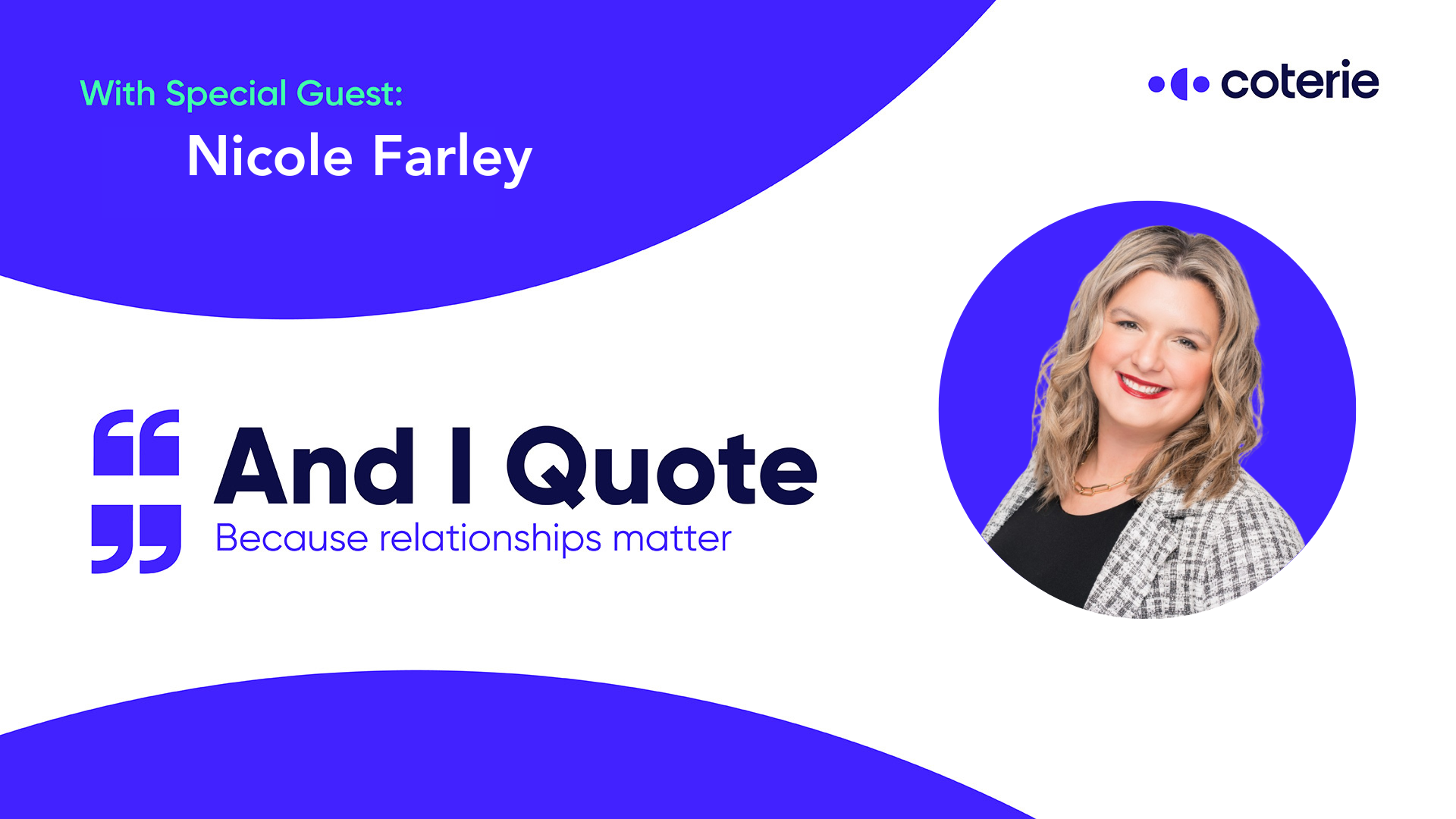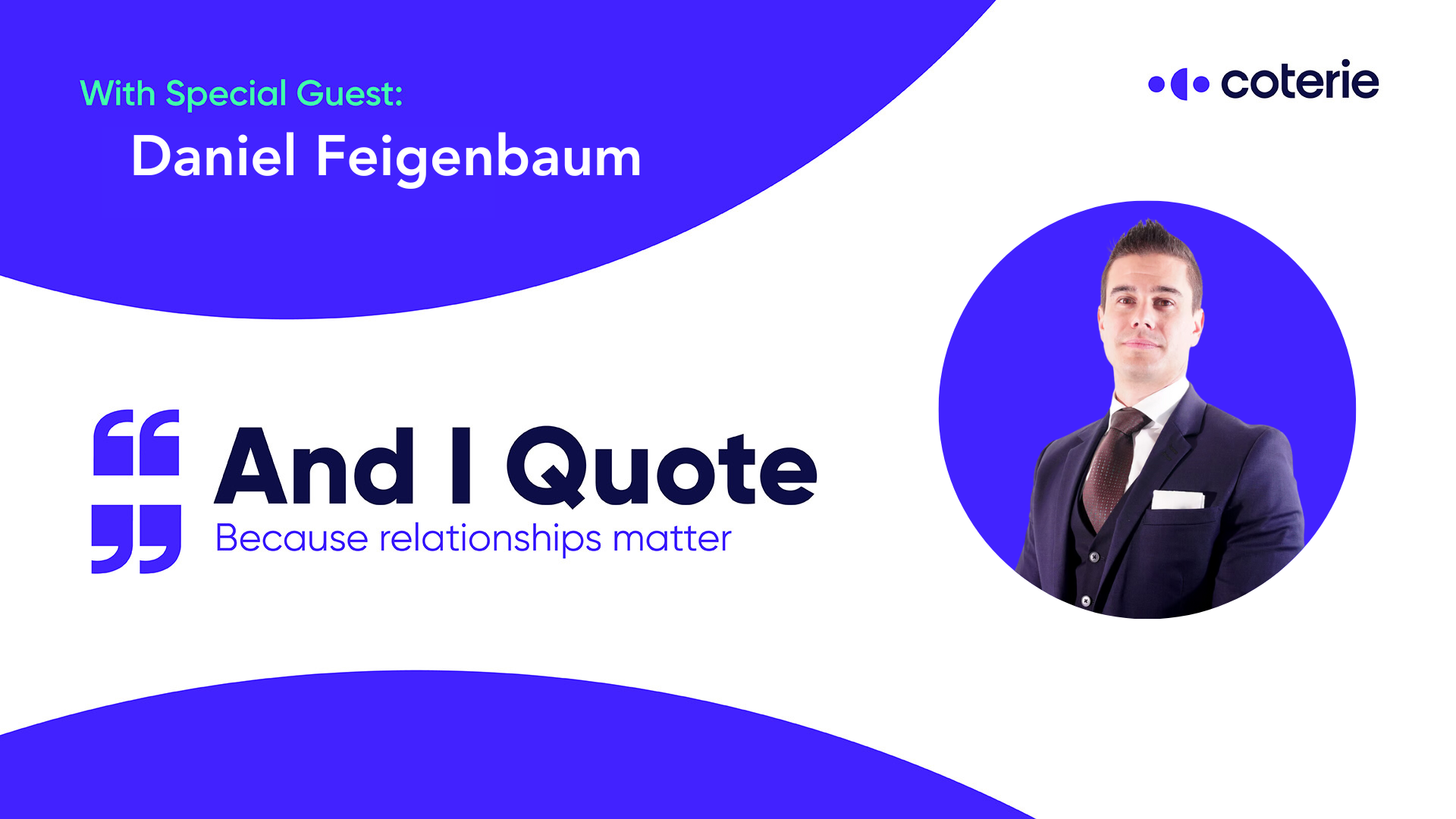Small business insurance brokers and agents struggle with using outdated legacy systems that bog them down, create inefficiencies, and drive poor productivity. The resulting lack of flexibility and responsiveness can create challenges that drive away business insurance leads.
One of the few upsides of the COVID-19 pandemic was the discovery of new ways of working for insurance brokers and agents. These changes altered workflows and prompted the implementation of more efficient tools and technologies for managing business insurance leads.
Marketing tools automate engagement
Small business insurance brokers and agents contend with constantly evolving marketing challenges. Changes to the economy, industry regulations and demographics can make it hard to determine an effective marketing strategy.
Additionally, you need to deal with innovative modern technologies that complicate how you engage with your target market. For example, leads that shift from using Facebook and Twitter to more visual platforms like Instagram, TikTok and YouTube necessitates a change in your approach and the tools you use to engage with your market.
But managing your marketing approach—especially across a variety of venues—is time-consuming and inefficient. It can also be difficult to ensure the content you’re sharing is effective, relevant, and personalized.
Tools that can improve the marketing workflows of small business insurance brokers and agents include:
- Unbounce: Uses AI to build, write, and optimize custom landing pages to generate leads and conversions
- Semrush or Ahrefs: Determines keywords to target in your content and social media posts to improve SEO and generate traffic
- CoSchedule: Organizes and manages your marketing schedule, projects, and processes
- Hootsuite or Buffer: All-in-one social media management to schedule and post on each of your social media platforms
- Adobe Marketo Engage: Builds and scales automated marketing campaigns to engage clients and track behaviors
- My Digital Agency: Provides you with a 24/7 digital presence, enabling clients to conveniently purchase coverage from you via multiple avenues
Using tools to streamline your marketing workflow lets you invest more time toward helping clients find and secure the business insurance coverage they need—and supporting them as those needs change and their businesses grow.
Email automation tools increase productivity and ROI (return on investment)
Worldwide email marketing revenue is expected to rise to $17.9 billion by 2027. According to the Content Marketing Institute B2B Content Marketing report, 69% of B2B (business to business) marketers used email newsletters and 68% used emails to distribute content between July 2020 and July 2021.
However, email marketing isn’t without its challenges: On average, 15.8% of all emails are lost or caught by spam filters.
The most effective emails rely on a combination of personalization, intriguing subject lines, and mobile-friendly presentations. In other words, small business insurance brokers and agents need to invest significant time and effort into email marketing—time and effort that’s wasted if your clients never receive your emails in the first place.
But poor email marketing results shouldn’t lead to you abandoning email marketing. In general, the ROI on email marketing is 36:1, though its return can increase if you commit more resources to it via automation, testing, and increased personalization.
To accomplish this, use tools like:
- Constant Contact, Mailchimp, or Campaign Monitor to craft engaging emails, track engagement, test your marketing, segment your audience, and add email automation
- Xverify or ZeroBounce to validate email addresses and improve email deliverability
By adding email automation to your insurance marketing toolbox, you can improve staff productivity, increase client retention, and cross-sell more policies.
Customer relationship management tools improve data efficiency
Small business insurance brokers and agents deal with a lot of data. Collecting information from your leads enables you to develop deeper insights faster, improving predictability and service. In fact, data-driven B2B companies report above-market growth and revenue.
All of this data helps you recommend the best policies and coverage for your clients. It also helps you identify underserved market segments, helping you to offer products that better suit their needs.
But the mass amount of data brokers and agents can now collect introduces three challenges:
- Fractured and legacy systems make it difficult to identify the value of data and how to use it.
- Data is managed at the product level instead of the customer level, making it difficult to identify clients “across product lines and/or at different stages of the policy life-cycle.”
- Insurance companies aren’t equipped with the tools or personnel to process and analyze data.
Customer relationship management (CRM) systems aren’t just digital rolodexes. Small business insurance brokers and agents can use CRMs to collect and collate data from each lead and client, including their names, addresses, dates of birth, product interests, owned policies, claims, habits, and support calls.
However, it’s important to find an industry-specific CRM, such as:
Incorporating an industry-specific insurance CRM streamlines your workflow by letting you personalize each of your interactions with a client—even across departments. You can also automate other manual tasks, such as policy renewal reminders, birthday greetings, and underwriting administration.
Agency management systems handle time-consuming processes
Small business insurance brokers often need to manage internal data on top of client information. Information about carriers, partners, employees, and contractors is vital to the ongoing needs of an agency, as are the short- and long-term goals and tasks that need completing.
Where a CRM handles lead and client data for the purposes of marketing and sales, an agency management system (AMS) is all-encompassing and enables you to:
- Collect, manage, and analyze data from leads and clients (similar to a CRM)
- Track and manage commissions
- Upload, store, and share documents and files
- Record information about sub-agents and partners
- Manage benefits, rates, coverage, and eligibility
- Integrate information from different carriers
- Schedule tasks and automate reminders for agents
- Handle accounting from within the AMS
- Automate frequently used workflows and tasks
In essence, an AMS streamlines your overall processes to improve efficiency and automate repetitive tasks. At the same time, most AMS tools replicate or build upon the functionality of a CRM so that all your data is present within a single system.
Most AMS products also support integration between other software and tools, helping ensure your data and information is accurate and accessible.
Common agency management systems include:
With an AMS, you can spend less time on time-consuming busywork and more time managing your agency, team, and clients. As a bonus, Coterie Insurance now offers Ivans Downloads for each of the above-mentioned AMS and many more!
Digital quoting and binding tools automate commercial underwriting
The commercial insurance industry has typically underinvested in technology. Small businesses, in particular, have been historically underserved by commercial insurers in favor of larger clients and the higher premiums they generate.
But the demand for digital and the benefits it provides is growing among small commercial clients, a market that has little time to deal with lengthy and time-consuming applications.
To overcome this pain point, brokers and agents need to adopt tools that enable an accurate and rapid process to quote and bind necessary insurance coverage for their business insurance leads.
Tools like Coterie’s dashboard use data pre-fill to pull reliable information about a lead using just their business name and address. In total, the digital underwriting process completes within minutes, enabling you to:
- Quickly and easily assess if a lead is within appetite
- Make policy and coverage recommendations
- Provide a bindable quote within minutes
Because it’s 75% faster to quote and sell using Coterie’s dashboard, you can respond to the needs of a small business near instantly.
By implementing automated digital underwriting into your workflow, you can improve the number of business insurance leads you sell to while overcoming one of their most significant objections—a lengthy and outdated binding process. Learn more and get started with Coterie today!





